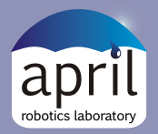
Feature extraction is a central step of processing Light Detection and Ranging (LIDAR) data. Existing detectors tend to exploit characteristics of specific environments: corners and lines from indoor (rectilinear) environments, and trees from outdoor environments. While these detectors work well in their intended environments, their performance in different environments can be poor. We describe a general purpose feature detector for both 2D and 3D LIDAR data that is applicable to virtually any environment. Our method adapts classic feature detection methods from the image processing literature, specifically the multi-scale Kanade-Tomasi corner detector. The resulting method is capable of identifying highly stable and repeatable features at a variety of spatial scales without knowledge of environment, and produces principled uncertainty estimates and corner descriptors at same time. We present results on both software simulation and standard datasets, including the 2D Victoria Park and Intel Research Center datasets, and the 3D MIT DARPA Urban Challenge dataset.
@article{li2010b,
AUTHOR = {Yangming Li and Edwin Olson},
TITLE = {A General Purpose Feature Extractor for Light Detection and Ranging
Data},
JOURNAL = {Sensors},
VOLUME = {10},
YEAR = {2010},
NUMBER = {11},
MONTH = {November},
PAGES = {10356--10375},
URL = {http://www.mdpi.com/1424-8220/10/11/10356/},
ISSN = {1424-8220},
DOI = {10.3390/s101110356},
}